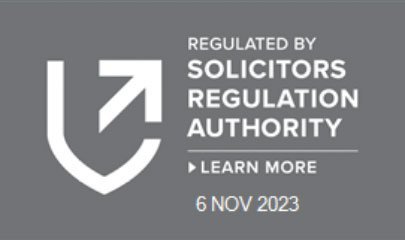What if my former spouse stops or reduces spousal maintenance payments as a result of the current Coronavirus situation?
In the first instance, it is important to establish the reason they are failing to make the spousal maintenance payments ordered by the Court. If there has been a genuine reduction in (or loss of) income, then it is possible that a Court would consider this to be a relevant change in circumstances justifying a variation of spousal maintenance payments. If this is the case, try to be understanding and take a practical approach to the situation. You are more likely to find a favourable solution if you can consider each other’s perspectives. We make some suggestions on how to do this below.
If there has been no change in their financial circumstances, they should continue to pay spousal maintenance in line with any Court order that is currently in place.
What if I have lost income and cannot afford to cover my own expenses whilst making full spousal maintenance payments?
The first step is to talk to your former spouse and explain the situation to see if you can reach an agreement to temporarily reduce or stop payments. It is essential to be understanding in this situation as you are both likely to be finding it difficult. Positive communication will help you to minimise anxiety and find a sensible solution.
If talking directly is not an option, you might consider instructing a family solicitor or specialist mediator to assist you from the outset.
You may find it helpful if you both complete a Schedule of Outgoings setting out your essential expenditure during this period. You can then exchange this information to help you to determine what a suitable level of temporary spousal maintenance may be.
As we are currently required to stay at home, some expenses such as utilities may have increased, but other outgoings will have reduced, such as spending relating to travel, socialising and other activities. It would be fair to take this into consideration and make an adjustment so that both of your basic needs for items such as food, utilities and accommodation can be met.
If you have savings, you could consider whether spousal maintenance payments can be met from these. It is also possible to obtain a clean break by making a lump sum payment in lieu of spousal maintenance payments. However, any sum to be paid should not be agreed without the prior advice of a solicitor and such an agreement should be recorded in a Consent Order.
In these unprecedented times, a Court might consider it unfair for you to accumulate debt if your former spouse is able to afford a temporary reduction in maintenance that would allow them to meet their current needs. Your former spouse should also consider whether they have sufficient savings to meet their income needs whilst you are unable to make full payments.
How long should any ceasing or reduction of spousal maintenance payments continue for?
Unfortunately, it is impossible for anyone to know how long the current situation will continue for and how this may evolve as time goes on. If at any point the payer’s income returns to a similar level to what it was, they should at that point increase the spousal maintenance payments to the amount set out in the Court order. If they fail to do so, the Court can order that maintenance payment arrears are paid.
What if we are unable to reach an agreement about how much maintenance should be paid?
If you are unable to reach an agreement between you, there are several options available.
Mediation: It is possible to attend virtual mediation sessions with a trained mediator, who can facilitate and guide discussions between you with the aim of reaching a resolution.
Negotiation: You could instruct specialist family solicitors to negotiate and broker an agreement on your behalf.
Arbitration: This is essentially a private Court process. A qualified arbitrator is appointed by agreement, the arbitrator hears evidence from both sides and then makes a legally binding decision on the outcome.
Court: Although it is possible for either of you to make an application to the Court – either to vary spousal maintenance payments (as the payer) or to enforce spousal maintenance payments (as the payee) – this should be avoided if possible. Such proceedings are costly and can end up being counter-productive if the costs outweigh any potential financial benefit. Court proceedings are uncertain and there is no guarantee of a set outcome. During these unprecedented times, the Courts are under immense pressure to deal with current cases effectively and there are likely to be delays in obtaining an outcome.
How should we record any agreement that we reach?
Where variations to the terms of a Consent Order are agreed, you should have a new Consent Order reflecting the amended terms drawn up by your solicitors. This should then be sent to the Court for approval so that it becomes legally binding and enforceable.
Alternatively, if the arrangements are likely to be temporary, you may wish to consider having a side letter or Deed (to be signed by both parties) drawn up by a solicitor, which sets out the details of the temporary variation so that it is clear.
At the very least, you should record the temporary variation of spousal maintenance payments in writing. This could be carried out by email, with one of you setting out the details and the other responding to confirm agreement. This would ensure that the Court could be provided with evidence if either of you raises issues with the variation at a later date.
We recommend that the benefits and risks associated with each of the above options is discussed with a solicitor in advance.
Is it possible to recover spousal maintenance shortfalls at a later date?
It is possible to agree that a temporary shortfall in spousal maintenance will be paid in full at a later date and within a certain period. However, there is no guarantee that you would be able to recover the arrears if they are not paid. You could apply to the Court to enforce the terms of a Court order, in which case the Court would analyse the circumstances, including both parties’ financial situations and earning capacities.
If you need advice on spousal maintenance issues or any other family law matter during the Coronavirus lockdown, you can book a video or telephone consultation with one of our team by calling +44 (0)20 7993 2936 or completing the enquiry form on this page.
































































